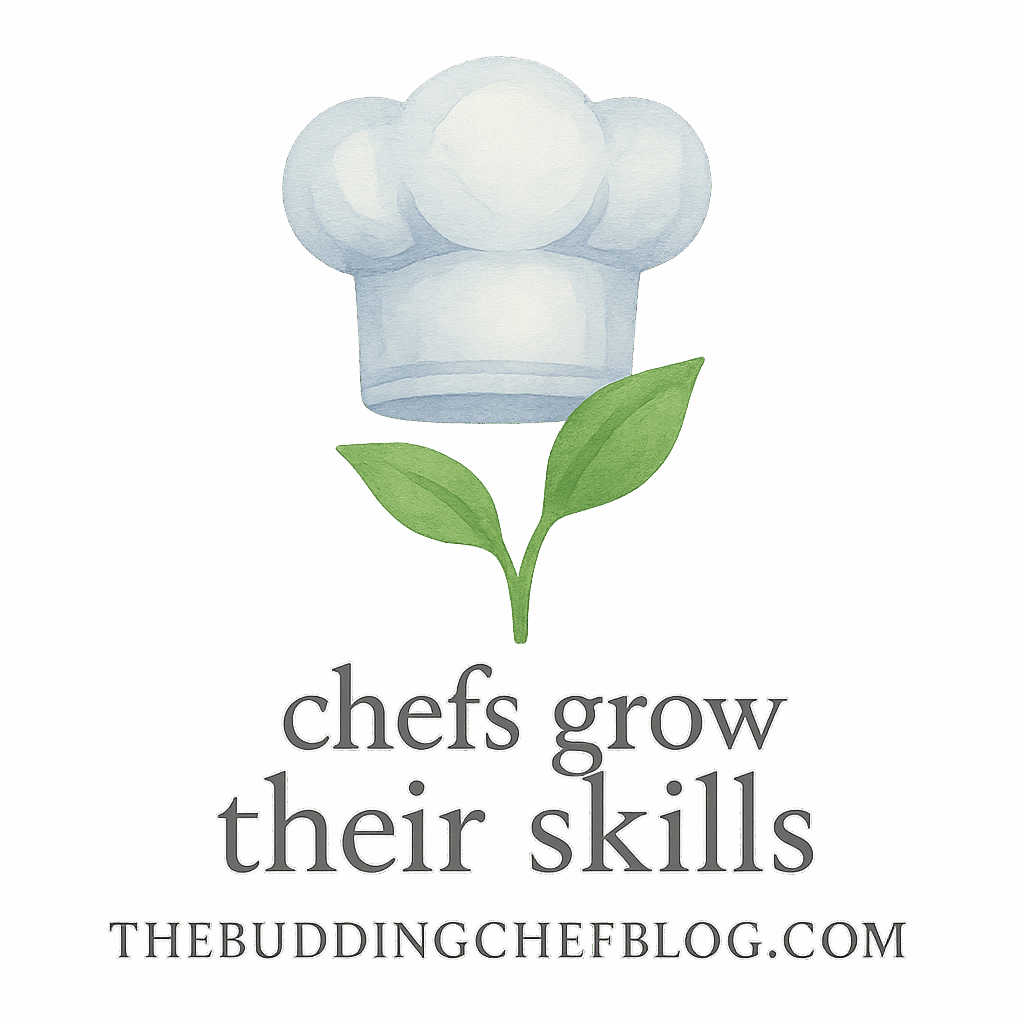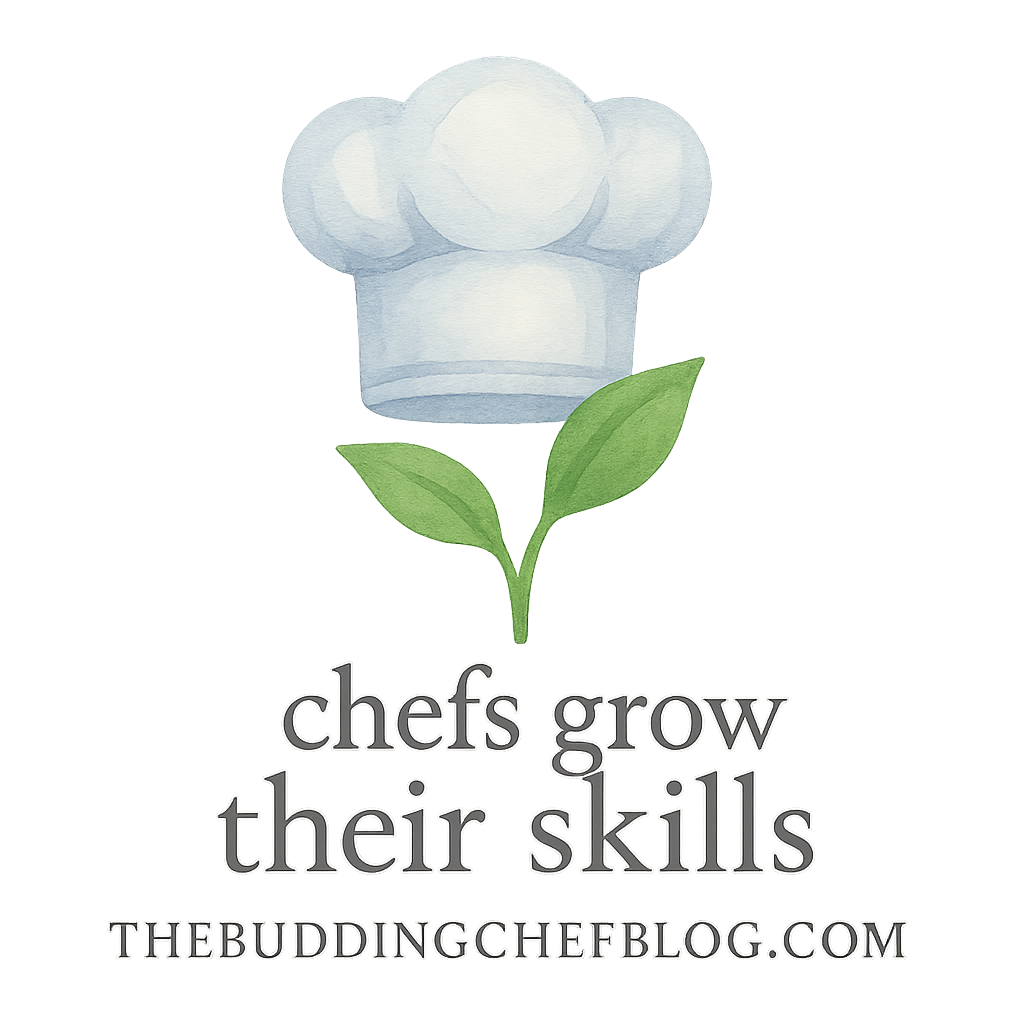Cooking can be intimidating when you’re just starting out. You’re not alone if the kitchen feels more like a chemistry lab than a fun place to experiment. But here’s the good news—you don’t need to be a pro to build your confidence. With the right tools, mindset, and know-how, anyone can cook like a champ. Let’s explore 12 essential cooking tips that’ll boost your confidence and get you loving your time in the kitchen.
Why Confidence Matters in the Kitchen
Confidence isn’t just about swagger—it’s about trust. When you feel confident in your cooking, you stop second-guessing every move. You feel at ease, make fewer mistakes, and have more fun. That’s what makes cooking empowering for beginner chefs.
Explore even more tips at The Budding Chef Blog to help build your culinary confidence.
Tip #1: Start with Basic Cooking Techniques
Learn the Foundations First
You wouldn’t start playing piano with Beethoven’s Symphony No. 5, right? Same thing applies in the kitchen. Start with the basics like boiling, sautéing, baking, and roasting. These basic cooking techniques are the building blocks of every delicious meal.
Use Simple Recipes
Simple doesn’t mean boring. Think grilled cheese, roasted vegetables, or stir-fried noodles. Use these as your test kitchen until you’re ready to level up.
Tip #2: Master Ingredient Knowledge
Know Your Ingredients
Understanding what you’re cooking with can make a huge difference. Visit our Ingredient Knowledge section to explore how different textures, flavors, and reactions work together.
How to Store Ingredients Properly
Confidence also comes from knowing your ingredients are fresh. A wilted basil leaf or expired milk can ruin an otherwise great dish.
Tip #3: Invest in Essential Kitchen Tools
Don’t Overcomplicate Equipment
You don’t need a gadget for everything. A sharp knife, a solid pan, and a cutting board will take you far. Browse kitchen tools and equipment that every chef should own.
Focus on Function Over Fancy
That avocado slicer may look cool, but it’s not essential. Stick to the basics and add tools as you grow.

Tip #4: Practice Makes Perfect
Make Cooking a Habit
Try dedicating 15–30 minutes each day or every weekend to cooking. It’s like going to the gym—but for your taste buds.
Repeat, Refine, and Reinvent
The first time might be a mess, but the third? You’ll feel like a seasoned pro. Check out our recipe practice hub for repeat-worthy meals.
Tip #5: Plan Your Meals Ahead
Confidence Comes with Preparation
Meal planning gives you clarity and structure. You’re not scrambling at 7 p.m. trying to figure out what to cook.
Try a Weekly Menu System
Plan 3-4 easy meals each week using a meal-planning method. It reduces stress and makes cooking a breeze.
Tip #6: Embrace Mistakes as Lessons
Everyone Burns Toast—Seriously
Even top chefs mess up. What separates them is how they bounce back.
Learning Happens Through Errors
Write down what worked and what didn’t. Every mistake is a step toward becoming a better cook.
Explore more common mistakes and how to avoid them.
Tip #7: Use Affordable Ingredients
Budget-Friendly Doesn’t Mean Boring
Delicious meals don’t have to cost a fortune. Rice, beans, and frozen veggies are incredibly versatile and affordable.
Explore Cost-Effective Cooking
Check out our affordable recipe section to get started. Also, visit the budget tag for more inspiration.
Tip #8: Join the Cooking Community
Follow Blogs and Forums
Read through posts on The Budding Chef Blog and explore tags like beginner and cookingchefs.
Learn from Others’ Experiences
Social media, forums, and YouTube are goldmines of practical advice and real-life experiences from other beginner chefs.
Tip #9: Improve Through Daily Challenges
Give Yourself Mini Tasks
Try cooking one new dish each week or master a new knife skill daily. These bite-sized challenges make growth fun and measurable.
Track Your Growth
Record your journey in a cooking diary or share it on social media. Use the challenges tag for ideas.
Tip #10: Build the Right Habits
Stay Consistent with Cooking Times
Set timers and be mindful of cooking temperatures. Over time, you’ll develop a natural sense of timing.
Clean as You Go
Confidence grows in a clean space. Plus, you’ll thank yourself later!
Explore more healthy habits that support growth in the kitchen.
Tip #11: Develop Cooking Skills Step-by-Step
Focus on One Skill at a Time
Don’t try to master everything in one week. Pick a focus—like sautéing or knife skills—and build on it.
Keep a Cooking Journal
Track your meals, wins, and areas for improvement. This helps you see your improvement over time.
Tip #12: Be Patient with Yourself
Confidence Comes with Time
Rome wasn’t cooked in a day. Stay the course and you’ll surprise yourself.
Enjoy the Journey
Cooking is about nourishment and creativity. Embrace the journey—burnt pancakes and all.
Conclusion
Becoming confident in the kitchen isn’t about knowing every technique or having the fanciest tools. It’s about showing up, staying curious, and being okay with messing up sometimes. You’re already on the path just by being here. Try one tip this week, then another the next. Before long, you won’t just be cooking—you’ll be thriving. And hey, even the best chefs started with scrambled eggs.
For more helpful articles, check out:
FAQs
1. What’s the easiest meal for a beginner chef to start with?
A stir-fry or one-pot pasta is perfect—easy, quick, and hard to mess up.
2. How can I build confidence when I keep making mistakes?
Mistakes are your best teacher. The more you mess up, the more you learn. Track what went wrong and try again!
3. What kitchen tools are truly essential for beginners?
Start with a chef’s knife, cutting board, non-stick pan, and measuring spoons.
4. Is meal planning really necessary for beginners?
Yes! It removes the guesswork and builds your rhythm. Explore our meal-planning section to learn more.
5. How can I cook on a tight budget?
Use pantry staples like lentils, rice, and eggs. Visit our budget-friendly tips to get started.
6. Should I follow recipes or cook intuitively?
Start with recipes, then begin to experiment as your confidence grows.
7. How long does it take to become confident in cooking?
Everyone’s pace is different. But if you cook consistently for a few months, you’ll feel like a pro in no time!


